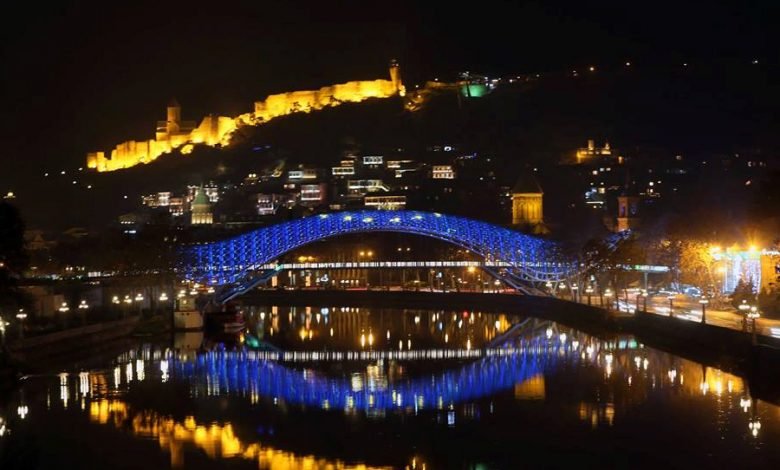
European Commission Urges GD to End Violence, Engage in Dialogue with Political Actors
The European Commission has urged the GD government to reverse its current trajectory, end violence against citizens, repeal repressive laws, and engage in dialogue with the political actors. The call came in a written response published by Euroscope, following an inquiry to the Commission’s press service into remarks by European Commissioner for Enlargement Marta Kos, when she said that the future dialogue with the ruling Georgian Dream party was not ruled out.
On April 28, speaking to RFE/RL’s Europe Editor Rikard Jozwiak, Kos further said that the EU was considering a range of measures in response to Georgia’s democratic decline, including suspending visa liberalization, freezing its EU candidate status, and reviewing the EU-Georgia Deep and Comprehensive Free Trade Area (DCFTA).
On EU Accession
According to the Commission’s press service, the current course of the Georgian Dream authorities jeopardizes Georgia’s EU path and has de facto led to a halt in the accession process. The spokesperson reiterated that political contacts with the Georgian authorities have been downgraded and are now limited to efforts to “finding a way out of the current situation.”
On Assistance
The Commission confirmed that more than EUR 120 million in direct assistance to the Georgian authorities has been suspended. An additional €30 million planned for 2024 under the European Peace Facility is also on hold, and no further assistance is planned for 2025. Meanwhile, the EU is “stepping up its support” for civil society and independent media, tripling funding from EUR 5 million to EUR 15 million.
The Commission added that it is “closely monitoring” the impact of recent legislative initiatives affecting civil society organizations, media, as well as draft amendments concerning political parties.
On Accountability
The EU reiterated its readiness to hold those responsible for political violence accountable and said it “stands ready to take further actions.”
It called on the GD authorities to “seek a way out of the current crisis and re-establish trust and dialogue, based on concrete confidence-building measures,” and to demonstrate “a genuine and irreversible” commitment to returning to the EU path.
According to the Commission, this includes ending violence against citizens, releasing those unjustly detained, suspending repressive laws in consultation with the Venice Commission, and engaging in meaningful dialogue with civil society and all political actors “to find a way out of the current crisis.”
In November 2024, the GD decided to halt the EU accession process until 2028, which sparked widespread anti-regime protests that have continued for five months now. Their violent dispersals and repression contributed to a sharp deterioration in Georgia’s relations with both the European Union and the United States, now at their lowest.
In response to the GD’s crackdown on dissent, the EU Foreign Affairs Council in January suspended visa-free travel for holders of Georgian diplomatic and service passports. High-level political dialogue between Brussels and Tbilisi has also been frozen since then.
Also Read:
- Liveblog: Resistance | Protesters March to Interior Ministry, Demand the GD’s Resignation
- 02/04/2025 – EU: Adopted Laws Erode Foundations of Democracy in Georgia
- 28/11/2024 – GD Aborts EU Accession
- 07/11/2024 – Commissioner-Designate Marta Kos Discusses Georgia’s EU Integration at Confirmation Hearing
This post is also available in: ქართული Русский